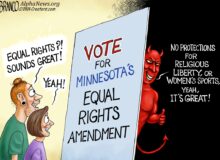Winston Churchill said, “Democracy is the worst form of government, except for all the others”. There’s a famous saying, “the Greeks had a word for it”, and they derived democracy from the word “demos” meaning “people”, and developed the method of government behind this word. In my opinion there were only two democracies that ever properly functioned, and one of them was in Athens at the time of Pericles. This was the first democracy in the world, and at its height it was almost a perfect democracy. The governing body was the Assembly, of which all male citizens over 18 were members (no women, slaves or foreigners). (It has been estimated this would have been around 35,000 men). The Council of Five Hundred, which prepared business for the Assembly and, if requested, carried out what had been decided there, was made up of citizens who were chosen by lot. The same was true for the juries. Minor officials also were chosen by lot. The chief magistrates and the highest officers in the army were elected by the Assembly. Pericles was a general, very popular, who acted as if he were head of state, but he had to be elected every year. There was complete political equality, it was a government of the people, by the people and for the people. An unregenerate old aristocrat in the early fourth century, B.C. wrote: “If you must have a democracy, Athens is a perfect example. I object to it because it is based on the welfare of the lower, not the better, classes. In Athens the people who row the vessels and do the work have the advantage. It is their prosperity that is important”. (I wonder what the Commies would say to this — not Communism, but Democracy was for the poor, and this is still true today).
Nevertheless, making the city beautiful was important, too, as were also the great performances in the theater. If, as Plato says, the Assembly was chiefly made up of cobblers and carpenters and smiths and farmers and retail-business men, they approved of the construction of the Parthenon and the other buildings on the Acropolis, and they crowded the theater when the great tragedies were played. Not only did all free men participate in the government; the love of the beautiful and the desire to have a part in creating it were shared by the many, not by a mere chosen few. This has happened in no state except Athens. “We are a free democracy”, Pericles said. “We do not allow absorption in our own affairs to interfere with participation in the city’s; we yield to none in independence of spirit and complete self-reliance, but we regard him who holds himself aloof from public affairs as “useless”. They called the useless man a “private” citizen, idiotes, from which our word idiot comes.
Freedom of speech was the right the Athenians prized most and there has never been another state as free in that respect. Politicians and prominent people were caricatured in the theater, and in the streets anybody could express an opinion without fear of reprisal, a law suit or arrest by the Feds. (When Mohammed rode into Mecca after winning the battle of Medina, at the top of the list of the Meccans who would be killed were some singing girls, who had sung songs mocking him, He also had many famous poets murdered because they had written unflattering poems about him. Anyone who did not praise him was killed).
Basic to all Greek achievement was freedom. The Athenians were the only free people in the world. In the great empires of antiquity — Egypt, Babylon, Assyria, Persia — splendid though they were, with untold riches and immense power, freedom was unknown. It was born in Greece, a poor little country but able to remain unconquered no matter what manpower and wealth were arrayed against her. At Marathon and Salamis overwhelming numbers of Persians had been defeated by small Greek forces, proof that one free man was superior to many submissively obedient subjects of a tyrant.
In Athen’s great prime Athenians were free. No one told them what they must do or what they should think — no church or political party or powerful private interests or labor unions. Greek schools had no donors of endowments they must pay attention to, no government financial backing which must be made secure by acting as the government wanted. To be sure, the result was that they had to take full responsibility, but that is always the price for full freedom. The Athenians were a strong people, they could pay the price. They were a thinking people; they knew what freedom means. They knew — not that they were free because their country was free, but that their country was free because they were free.
The second instance of successful democracy occurred all over New England in the 19th century when in many little towns all the citizens would meet in the Town Hall to discuss an issue. One man would get up and propose, for example, that a new bridge was needed and give his reasons why, how much it would probably cost, who would build it and when it would be finished, and the advantages it would bring. Then another stalwart farmer would rise and give all his reasons why a new bridge was not necessary, the one they had was quite sufficient to handle all the horse-carts and buggies coming in and out, and the money would be better spent on improving the school or in some other way. Then a lively discussion would follow, with other citizens voicing their opinions, and then all those present would vote, sometimes by a showing of hands, and the proposal receiving the most votes would be adopted.
These two locations were small — in the small new England town everybody knew everybody, and Athens was not even a country, only a City-State and everybody knew everything about the candidates, their family histories and what the grandfathers had done in the wars, etc. The same can be said of Israel — the citizens are known from border to border, and many families are connected through marriage or having been together in the army or at a University or in Kibbutz or business, so you know who you are voting for and democracy is valid. But in huge countries like USA, when I’m supposed to vote for someone from California where I’ve never been and do not know anybody or how the people there think and I’m supposed to vote for a man on TV with a grinning woman by his side??? And the possibility of fraud is greater the larger the country. I don’t trust the results of most of the elections world wide. Stalin said “Those who cast the votes don’t count, it’s those who count the votes that count.” Well, criminals will always find a way to have their candidate win. In my opinion, Obama did not win either the first or the second election — it was all rigged, he knew he had won before the votes were even counted. And the American engineer Tom Fife was in Russia in 1972, and the wife of a Russian colleague told him the next American President would be black, he would be from Hawaii and graduate from Harvard and many other details about Obama — the Commies had selected him even before 1972. And all the Communists put in place in the media, in the schools, in the Black Panthers, everywhere — it was all rigged. Obama was not elected — he was selected.
But now we have Trump — he is lucky to have an informed public, people are not being fooled anymore, the more the thug demons attack him, the higher the number of his fans. He says what he thinks and it’s the truth. I feel I know this candidate better than any other ever. I trust him, and wish he were already sworn in. America will be greater than before.





















Join the conversation!
We have no tolerance for comments containing violence, racism, vulgarity, profanity, all caps, or discourteous behavior. Thank you for partnering with us to maintain a courteous and useful public environment where we can engage in reasonable discourse.